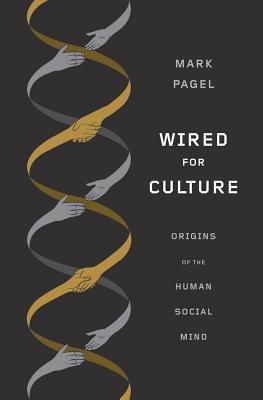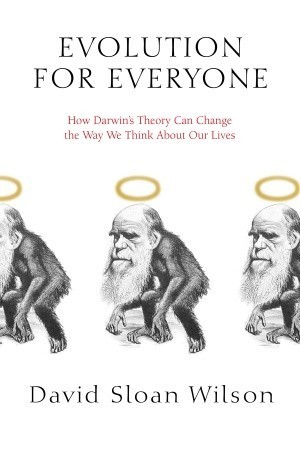
Wired for Culture: Origins of the Human Social Mind
Book Description
What if the very fabric of human society was woven from unseen threads of evolution? "Wired for Culture" unravels the profound mysteries of the human social mind, revealing how our ability to collaborate, communicate, and innovate shaped civilizations. Mark Pagel dives into the depths of our genetic heritage, illustrating how culture has fueled our survival and progress, transforming us into unique beings bound by shared beliefs and practices. This exhilarating exploration challenges everything you thought you knew about humanity's journey. Can understanding our social instincts unlock the secrets to a better future?
Quick Book Summary
"Wired for Culture: Origins of the Human Social Mind" by Mark Pagel explores how humans have evolved to become the most culturally advanced species on Earth. The book argues that culture is not a byproduct of our evolution but a core evolutionary adaptation that has allowed our species to survive, thrive, and dominate the globe. Pagel explains that our shared beliefs, languages, and social structures are the result of genetic mechanisms fostering cooperation, trust, and communication among large groups. Tracing the journey from early hominids to modern civilizations, Pagel illuminates the ways culture shapes behavior, influences genetics, and makes collective progress possible. Ultimately, he suggests that understanding the evolutionary underpinnings of culture holds the key to navigating contemporary challenges and unlocking humanity's future potential.
Summary of Key Ideas
Table of Contents
Culture as an Evolutionary Adaptation
Mark Pagel presents the thesis that culture is not merely an ornament of human evolution but its most powerful tool. From the earliest societal groupings, culture became a solution to survival challenges, enabling humans to share knowledge, pool resources, and establish trust in groups far larger than typical primate societies. Through cumulative cultural learning, traditions and technologies developed far beyond what individual intelligence could achieve, setting the foundation for complex civilizations.
The Role of Language in Cooperation
A central pillar of human culture is language. Pagel argues that language emerged not just as a means of communication but as a highly sophisticated mechanism for transmitting complex ideas, norms, and instructions with remarkable efficiency. Language knits together group members, facilitates teaching, and allows information to persist across generations. Moreover, it helps establish the social norms and boundaries that create in-group trust and out-group differentiation.
Group Selection and Social Boundaries
The formation and maintenance of groups rely on mechanisms honed by both genetics and cultural practice. Pagel highlights that group selection—the competition among groups rather than individuals—has shaped human psychology. Social instincts like cooperation, loyalty, and even suspicion of outsiders promote group cohesion. Cultural signatures such as accents, dress, and rituals further reinforce identity, strengthening the bonds within groups while distinguishing them from others.
The Coevolution of Genes and Culture
Pagel delves into the dynamic interplay between genes and culture, showing that the two have coevolved in a tight feedback loop. Cultural practices can alter selective pressures, leading to genetic changes—such as lactose tolerance in populations domesticating cattle—and, conversely, genetic predispositions can influence cultural preferences. This coevolution has accelerated the pace of both biological and technological innovation.
Innovation and the Future of Cultural Evolution
Looking forward, Pagel examines how the rapid spread of new ideas, fueled by global connectivity, is transforming cultural evolution. The same traits that allowed our ancestors to adapt and form alliances now present challenges in an interconnected world. By understanding how our minds are wired for both cultural unity and division, Pagel concludes, we can harness our evolutionary legacy to build a more cooperative and innovative future, while mitigating the risks of cultural conflict and fragmentation.
Download This Summary
Get a free PDF of this summary instantly — no email required.





